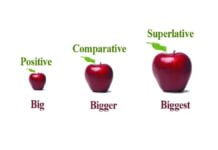Understanding sentence structure is crucial in writing because it allows for clear and effective communication. These are the three main types of sentences, each distinguished by the number and types of clauses they contain. Simple sentences contain one independent clause containing a subject and a verb. They express a complete thought and can stand alone as a sentence. Compound sentences comprise two or more independent clauses with a coordinating conjunction. These clauses can stand alone as separate sentences and are connected by a comma or a semicolon. Complex sentences consist of one independent clause and at least one dependent clause. The dependent clause cannot stand alone as a sentence and relies on the independent clause for meaning.
By knowing how to construct complex sentences, writers can convey more complex ideas and show relationships between different sentence parts. Additionally, using compound sentences helps to create a sense of flow and variety in writing, preventing it from becoming monotonous. A solid understanding of sentence structure enhances the overall quality and impact of one’s writing.

Simple Sentences
Simple sentences are the building blocks of writing. It contains only one independent clause, meaning it makes a complete statement or expresses a complete thought. These sentences are concise and straightforward, making them easy to understand. It consists of a subject and predicate (verb or verb phrase). Simple sentences are often used to convey information or make a clear statement.
E.g., The cat is sleeping.
This sentence contains a subject (cat) a verb (is sleeping), and expresses a complete thought. It does not contain any additional clauses or complex structures. Despite its simplicity, a simple sentence can also include modifiers. For example, “The sun shines brightly.” Here, “The sun” is the subject, and “shines brightly” is the predicate.
Simple sentences are commonly used in everyday conversations and provide clarity and directness in communication. In this way, we ensure that many audiences easily understand our message. This is particularly crucial when communicating complex ideas or instructions, as simple sentences break down the information into manageable chunks. Simple sentences allow for efficient and effective communication, eliminating any confusion or ambiguity arising from using longer, more convoluted sentence structures. However, to create a more engaging and sophisticated piece of writing, it is essential to incorporate a variety of sentence types, including compound and complex sentences.
- The sun rises in the east.
- She likes to read books.
- They walked to the park.
- He runs every morning.
- I enjoy playing the guitar.
- The cat sleeps on the windowsill.
- Birds sing in the trees.
- She smiled at me.
- He cooks dinner for his family.
- The car stopped at the red light.
Compound Sentences
A compound sentence contains at least two independent clauses. These clauses are typically joined by a coordinating conjunction (or, and, but, so, yet, for, nor) or semicolons. Each clause could stand alone as a simple sentence because it expresses a complete thought. Compound sentences are formed by combining two or more independent clauses with a coordinating conjunction, such as “and,” “but,” or “so.” These sentences are characterized by their ability to express multiple thoughts or ideas that are related but distinct. By using compound sentences, writers can convey a sense of balance and parallelism, making their writing more coherent and impactful. Compound sentences also allow for a greater variety of sentence structures, adding richness and variety to the overall composition.
E.g., I enjoy reading, but my friend prefers playing sports.
Here, “I enjoy reading” and “my friend prefers playing sports” are both independent clauses joined by the conjunction “but”.
Using compound sentences to join two related independent clauses can create a more sophisticated writing style by adding complexity and variety to the sentence structure. It allows for expressing multiple ideas or actions within the sentence, leading to a more cohesive and fluid narrative. Compound sentences help to convey the relationship between the clauses, emphasizing cause and effect, contrast, or parallelism. This can enhance the overall clarity and impact of the writing, making it more engaging and persuasive to the reader.
- I wanted to go to the beach, but it was raining heavily.
- She studied diligently for the exam, and she ended up getting the highest score in the class.
- He loves playing soccer, so he joined a local team to improve his skills.
- I enjoy reading novels, and they are a great source of inspiration.
- They went hiking in the mountains but got lost on the trail.
- I need to finish my work to have more time with my family.
- She practised the piano for hours daily and eventually became a concert pianist.
- He could not decide between chocolate or vanilla ice cream, so he got both flavours.
- I always struggled with math but started attending tutoring sessions, and my grades significantly improved.
- They worked tirelessly on their project, and their hard work paid off when they won first place in the competition.
Complex Sentences
A complex sentence has one independent clause (or main clause) and at least one dependent clause (or subordinate clause). A dependent clause is a group of words that contains a subject and a verb, but it does not express a complete thought. So, it cannot stand alone as a sentence and is often introduced by a conjunction.
E.g., Because it was raining, we decided to stay inside and watch a movie.
“Because it was raining” is the dependent clause, and “we decided to stay inside and watch a movie” is the independent clause. This sentence demonstrates the use of dependent clauses to provide additional information or context to the main independent clause.
Complex sentences express relationships between ideas and provide depth to writing, including the ability to show cause and effect, compare and contrast, and express conditions and concessions. They are helpful when we want to provide additional information or show the relationship between ideas. By incorporating dependent clauses, writers can convey more nuanced meanings and add layers of complexity to their arguments or descriptions. Complex sentences can also make writing more engaging and exciting for the reader, as they create a rhythm and flow that keeps the audience captivated. However, it is crucial to be mindful of the length and structure of complex sentences, as they can become confusing if not properly constructed. It is also crucial to ensure that the dependent clauses are appropriately connected to the main clause to maintain clarity and coherence.
- Although it was raining, she decided to go for a run.
- Because he studied hard, he aced the exam.
- After we finish dinner, we will watch a movie.
- Since I had some free time, I read a book.
- Even though it was late, they continued their conversation.
- Although she was tired, she could not sleep.
- Because the store was closing, he rushed to make his purchase.
- After I finish my work, I will meet you for lunch.
- Since the traffic was heavy, they arrived late to the party.
- Although they practised diligently, they still lost the game.
Compound-complex Sentences
A compound-complex sentence is a type of sentence structure that combines the features of both compound and complex sentences. It contains multiple independent clauses (making it compound) and at least one dependent clause (making it complex). In other words, it is a sentence that includes two or more independent clauses and one or more dependent clauses.
E.g., She went to the store (independent clause) because she needed to buy groceries (dependent clause), and she also wanted to pick up some flowers (independent clause).
Compound-complex sentences allow one to express intricate or multifaceted ideas in a single sentence. They are helpful when there is a need to convey relationships between multiple ideas or events. They help join related thoughts or events into a single sentence, creating a smoother flow in writing. This is particularly useful in narrative or descriptive writing. A compound-complex sentence demonstrates cause-and-effect relationships by placing the cause (independent clause) and the effect (dependent clause) within the same sentence. People often use compound-complex sentences to convey their thoughts and ideas in everyday conversation, so using them in writing can make the text more conversational and relatable.
- Although she was tired (dependent clause), she decided to stay up late to finish her project (independent clause), and her determination paid off when she received an A on it (independent clause).
- He wanted to go to the beach (independent clause), but since it was raining (dependent clause), they decided to have a movie night at home (independent clause).
- After the storm passed (dependent clause), they went outside to assess the damage (independent clause), and they found that their roof had some minor leaks (independent clause).
- While I was studying for my exams (dependent clause), my sister was playing music loudly in the next room (independent clause), and it was difficult for me to concentrate (independent clause).
- Because he missed the earlier flight (dependent clause), he had to take a later one (independent clause), and as a result, he arrived at the conference later than planned (independent clause).
- She enjoys hiking in the mountains (independent clause), and whenever she has the opportunity (dependent clause), she invites her friends to join her (independent clause).
- Since they had saved some money (dependent clause), they decided to take a vacation (independent clause), and they chose a tropical island as their destination (independent clause).
- After finishing her work at the office (dependent clause), she went to the gym for a workout (independent clause), and later, she met her friends for dinner (independent clause).
- Although it was a chilly evening (dependent clause), they decided to sit outside by the fire (independent clause), and they enjoyed the warmth while sharing stories (independent clause).
- While she was preparing dinner (dependent clause), her children were doing their homework (independent clause), and they all gathered around the table when the meal was ready (independent clause).
Varying Sentence Structure
In engaging readers and ensuring comprehension, sentence structure plays a crucial role. Ideas may become muddled and unclear without proper sentence structure, hindering the overall message. Therefore, writers must practice and refine their sentence structure skills to ensure their ideas are conveyed accurately and coherently. Using simple sentences helps to convey straightforward information or ideas, allowing the reader to grasp the main point quickly. Complex sentences enable the writer to delve deeper into a topic by providing additional details or supporting evidence. Compound sentences allow for the connection of multiple ideas or actions, creating a more cohesive and fluid narrative.
By combining simple and complex sentences in a balanced manner, writers can strike a harmonious chord that keeps readers engaged and enhances their understanding. Incorporating compound sentences can add depth and complexity to writing by connecting ideas and actions, creating a more seamless flow of information.






























